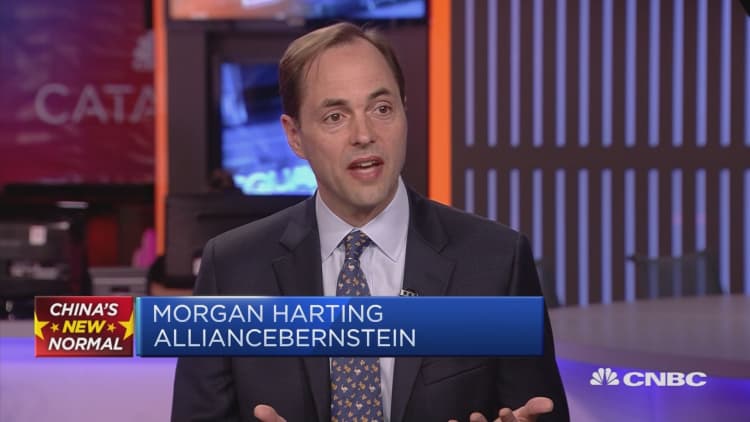The Federal Reserve is expected to announce an interest rate hike at its meeting later on Wednesday and market watchers are looking at the potential impact on emerging market assets.
The U.S. central bank raised its federal funds rate by 25 basis points in December of last year and March this year. Another quarter percent hike has been broadly priced in by markets.
Morgan Harting, portfolio manager of emerging market multi asset portfolio at AllianceBernstein, dismissed concerns that policy tightening by the Fed would be negative for emerging markets.
"What we see is when growth is strong the Fed tends to be raising rates. The last time the Fed really raised rates was in 2004, when it went from 1 percent to 5.25 percent and over that time we saw emerging market assets rally by 135 percent," he told CNBC's Squawk Box on Wednesday.
"We've seen emerging markets rally quite strongly since the first one into this. I think the Fed is communicating an environment of strong growth and one in which inflation remains relatively benign."

Harting says governance remains a key concern in emerging markets, but says he thinks the 30 percent discount on emerging market stocks is excessive given the strong earnings growth in emerging markets. As an example, he highlighted earnings growth in China and said there are good investment opportunities in the region.
"Capacity utilization is rising because excess capacity at state owned companies has been shut down and on-going demand has absorbed private sector capacity," he said.
"This has improved pricing power for Chinese companies and we're seeing earnings growth of 30 percent, yet the market is still undemanding in its valuation at about 13 times earnings, compared to 18 for the S&P."
UBS economists Gyorgy Kovacs and Anna Zadornova are also feeling more bullish for growth in some emerging markets. They've revised their GDP (Gross Domestic Product) forecasts higher for Poland, the Czech Republic, Hungary and Turkey due to strong first quarter growth, the Eurozone recovery and a downward revision to the oil price trajectory.
"Q1 2017 GDP growth details have been very strong for many EMEA economies, with Turkish GDP growth hitting 5 percent, while essentially all Central and Eastern Europe countries were expanding by around 4 percent year on year," they said in a research note published Wednesday.
"The key positive risks are stronger Eurozone/China growth, more benign carry environment lingering for longer and domestic reforms. On the flipside, we consider the main negative risks to be: global and domestic policy uncertainty, more cautious consumer and investment recovery."



